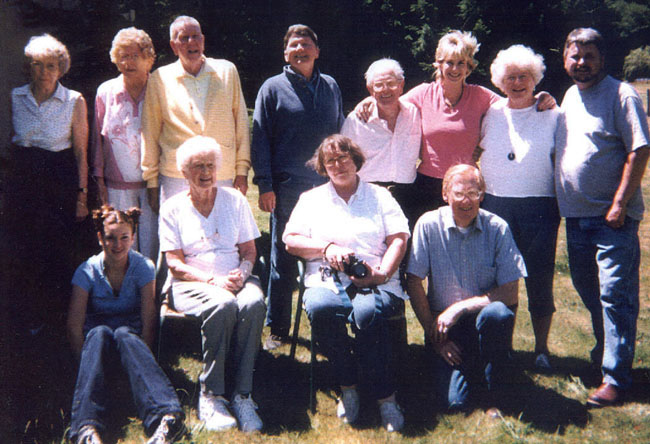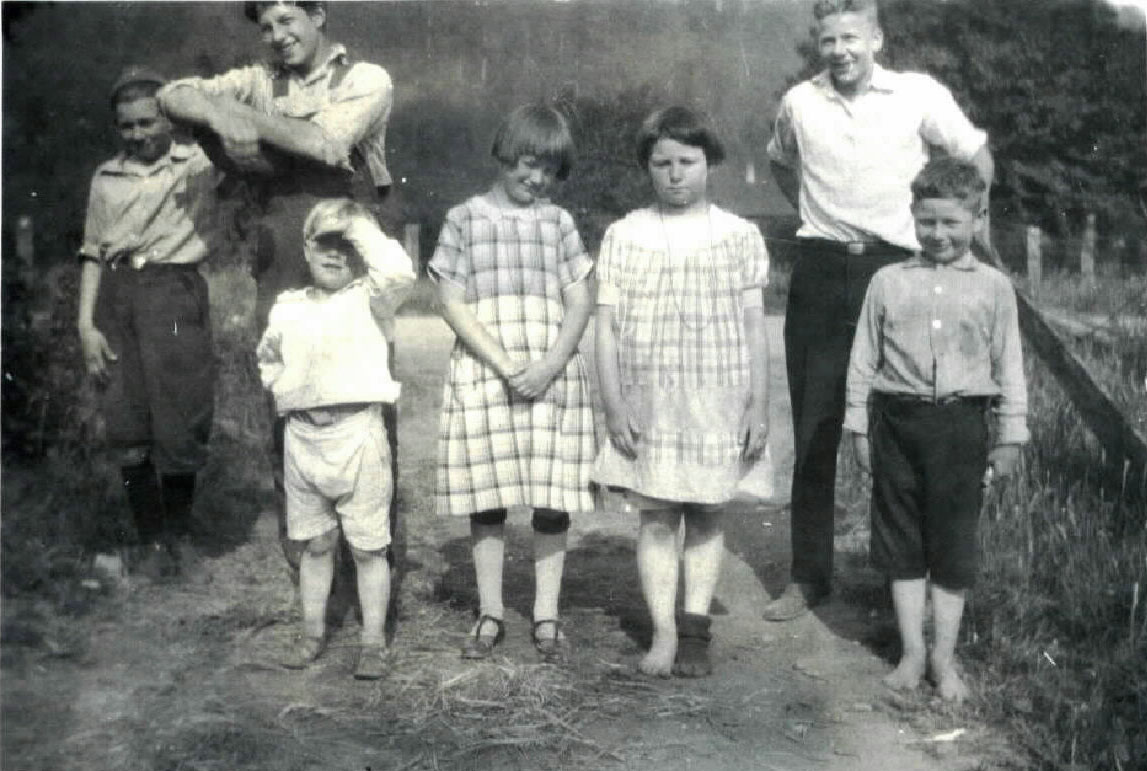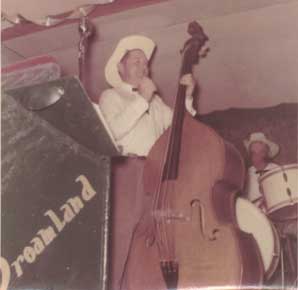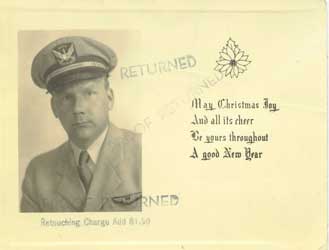

 |
left to right: Kerlyle Johnson, Tom Royal, Jack Royal, Alcina Allen, Maudie Royal, Norm Johnson, Howard Royal. |
 Howard: Yah, I played in modern bands, I loved modern bands, the darn pages with the fly speck on them used to get in my way a little bit, so I’d improvise my own till I got caught. But Western Swing Bands I loved, everybody worked together as a team and you had fun. And the people had fun out there too!
Howard: Yah, I played in modern bands, I loved modern bands, the darn pages with the fly speck on them used to get in my way a little bit, so I’d improvise my own till I got caught. But Western Swing Bands I loved, everybody worked together as a team and you had fun. And the people had fun out there too! Norm: I was still with United Airlines, see they declared the pilots, you see….they took a whole bunch first, those who were in the reserves, I wasn’t in the reserves. And they took a whole bunch of them, then the airlines got together and the officials went to Washington and said “ Hey, we’re hauling army cargo, what you gonna do, take our pilots away from us?” So they rethought on it, and decided they better defer the airline pilots for the war. Because we did haul an awful lot of cargo for them.
Norm: I was still with United Airlines, see they declared the pilots, you see….they took a whole bunch first, those who were in the reserves, I wasn’t in the reserves. And they took a whole bunch of them, then the airlines got together and the officials went to Washington and said “ Hey, we’re hauling army cargo, what you gonna do, take our pilots away from us?” So they rethought on it, and decided they better defer the airline pilots for the war. Because we did haul an awful lot of cargo for them.